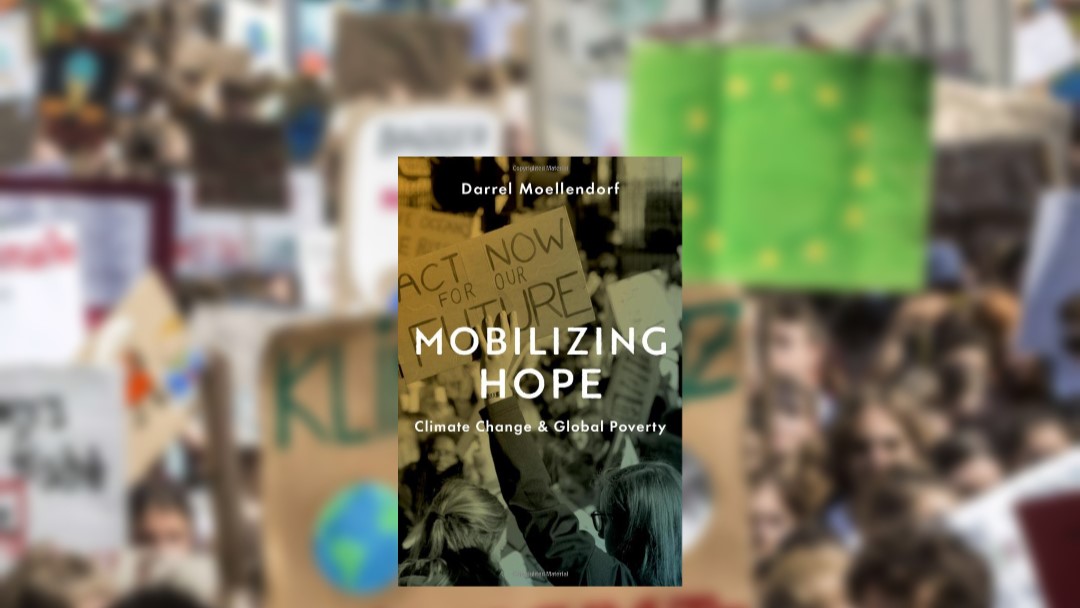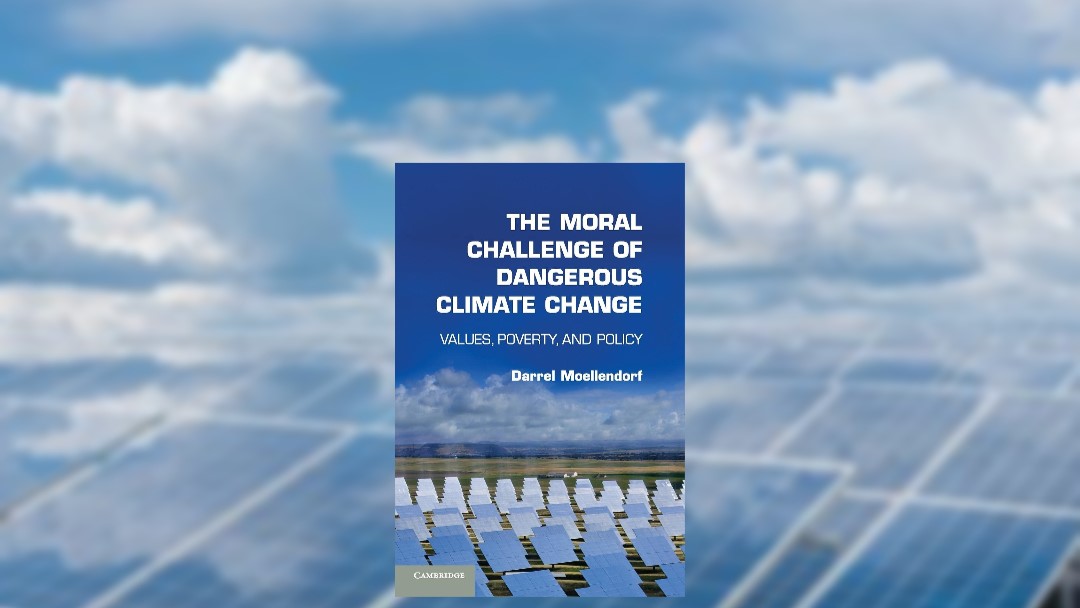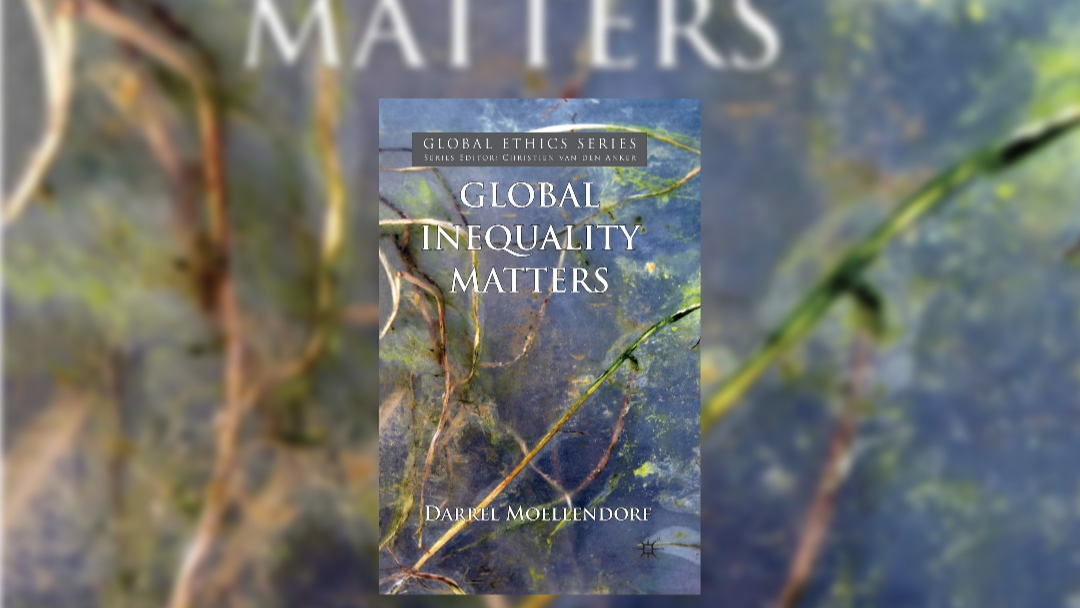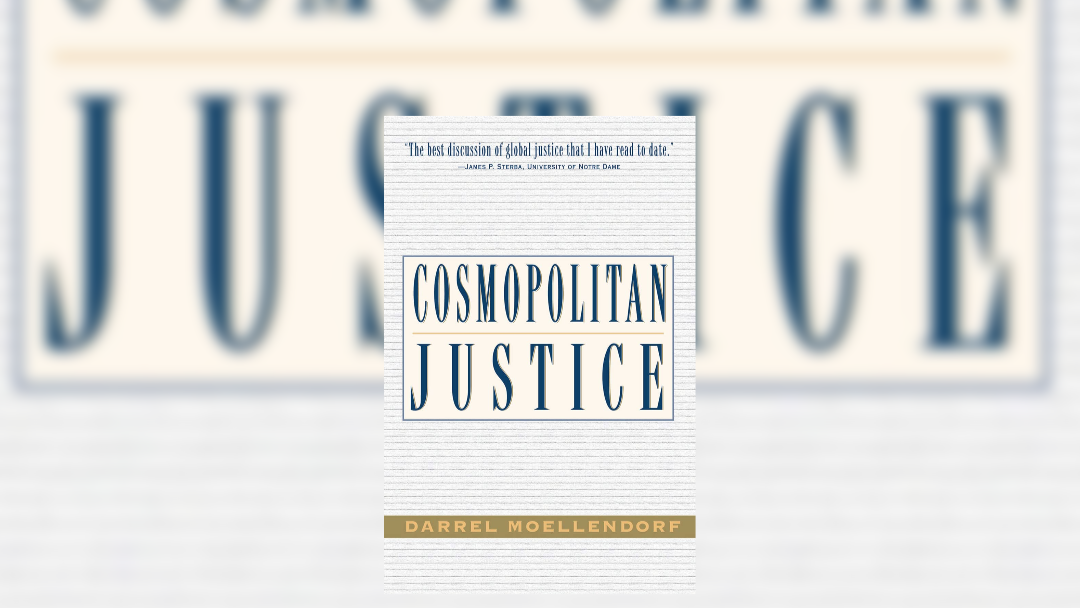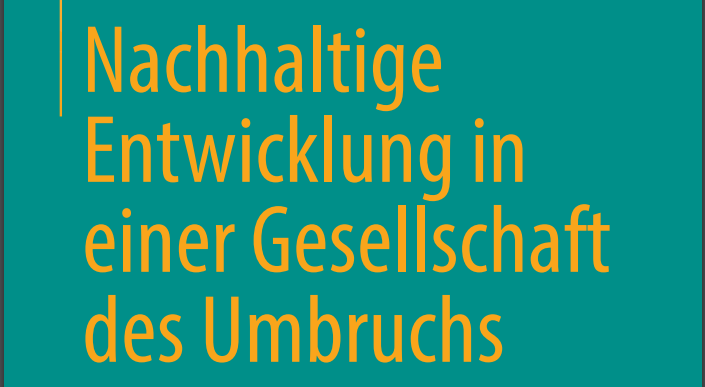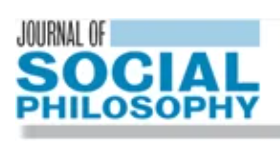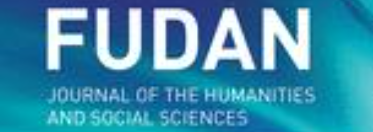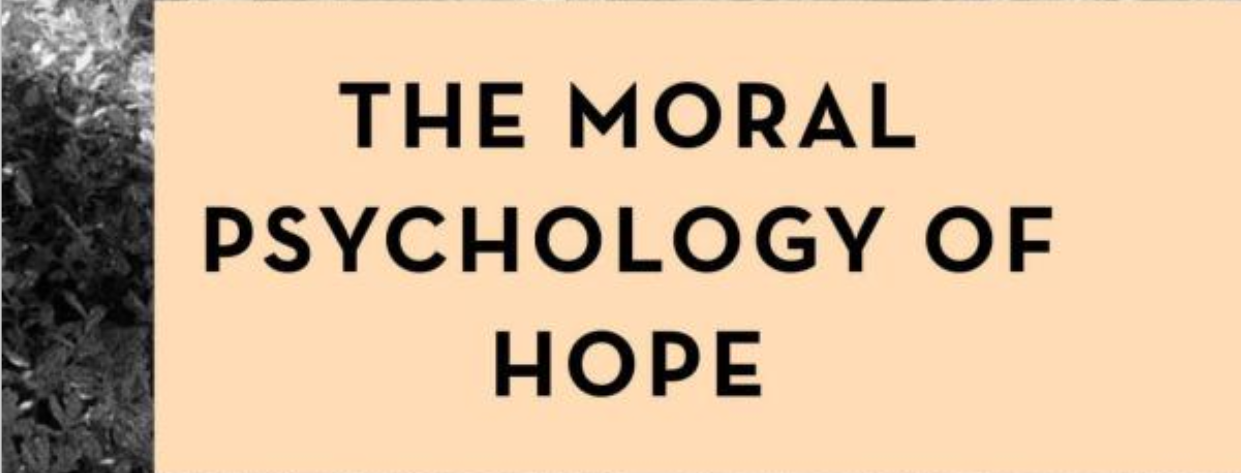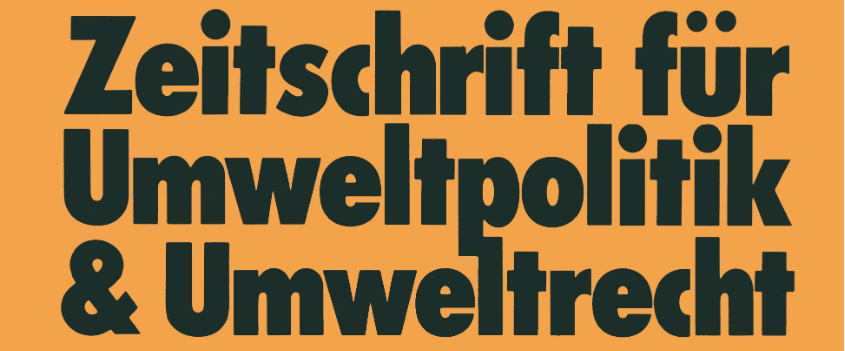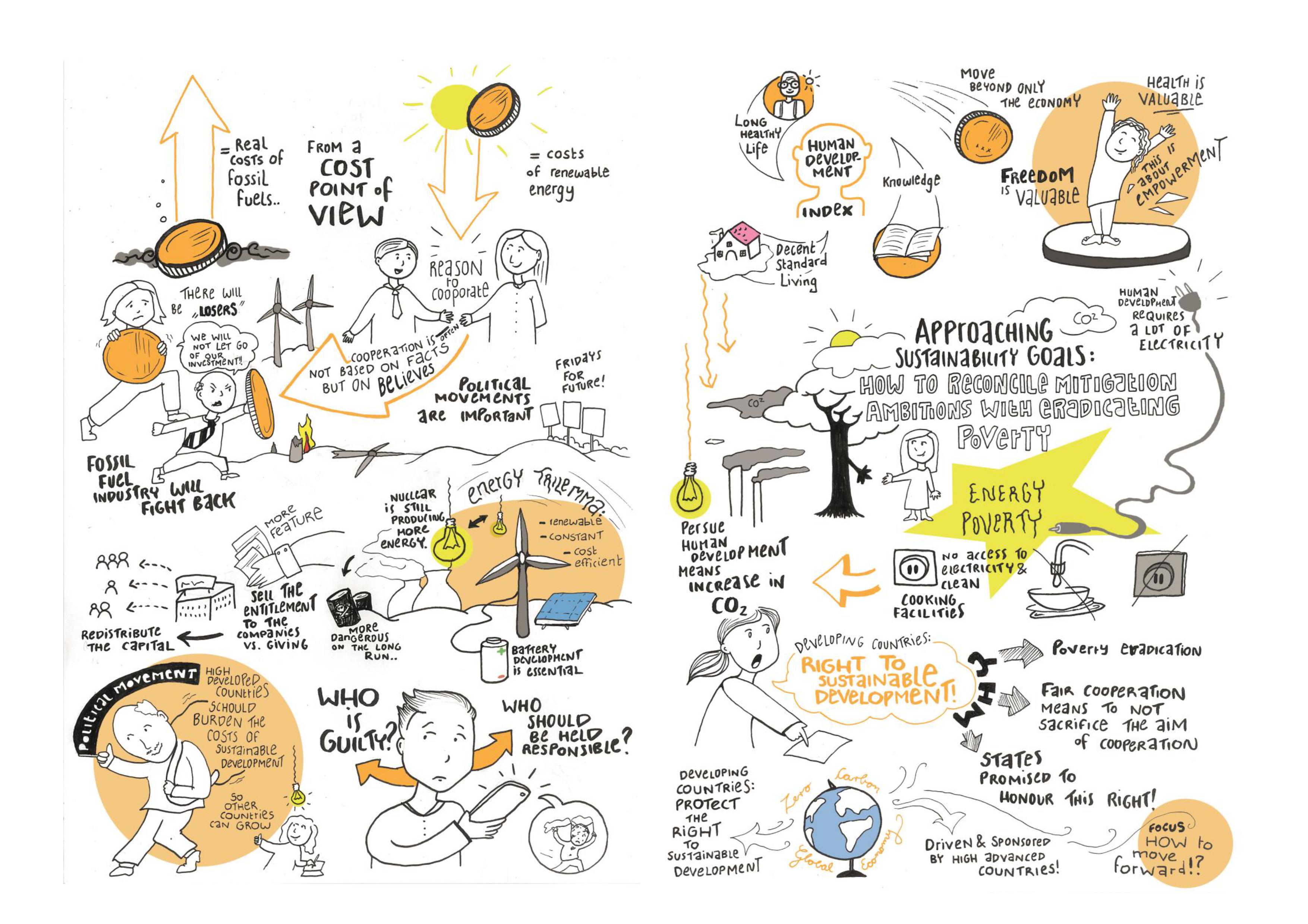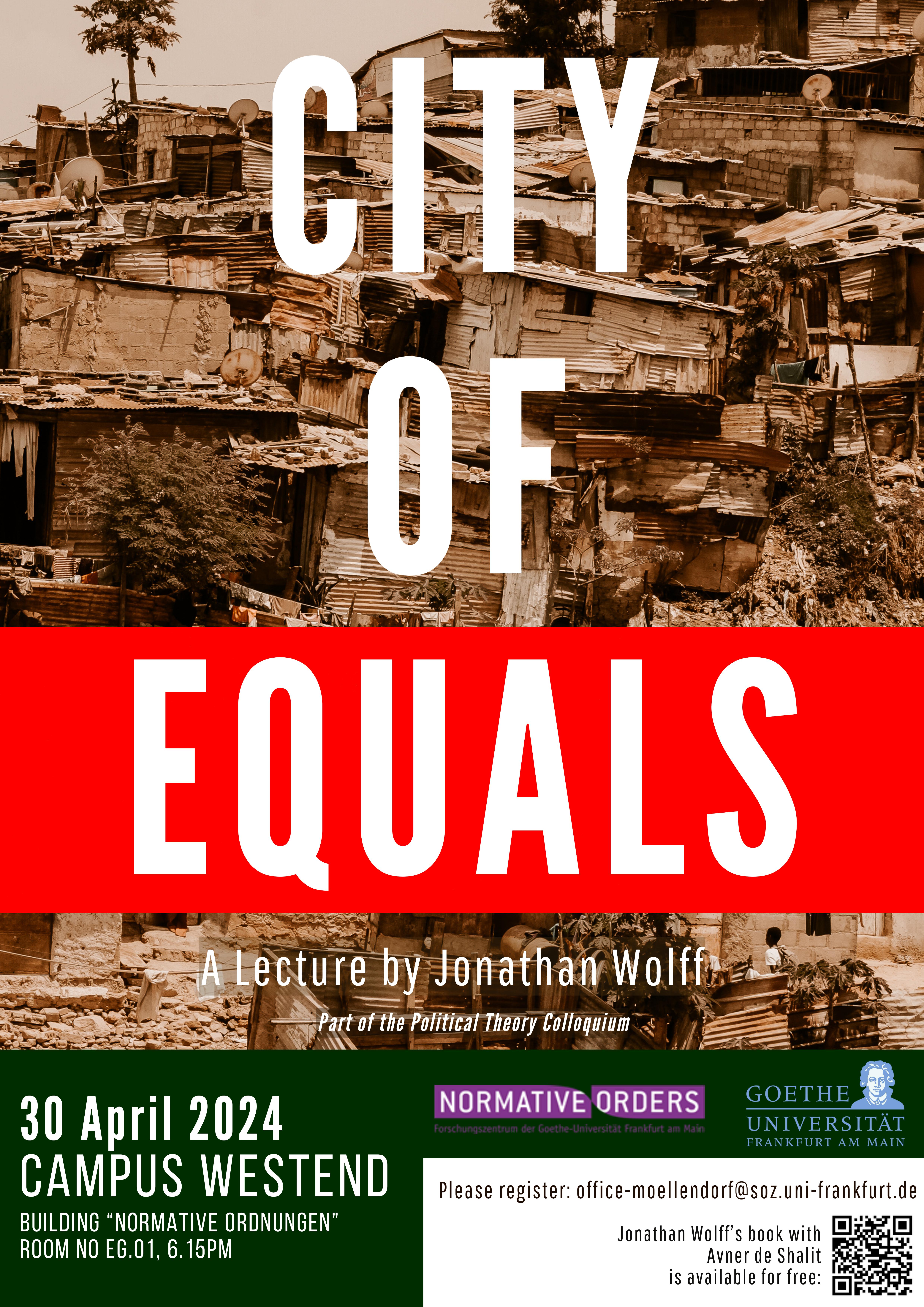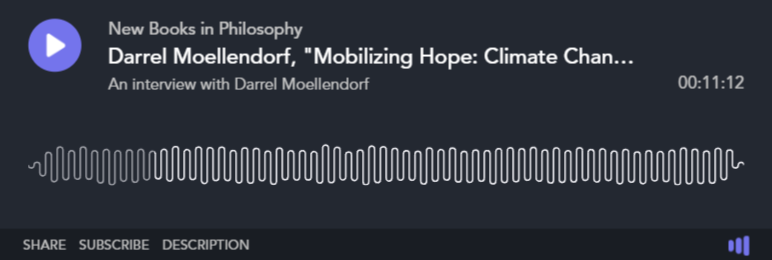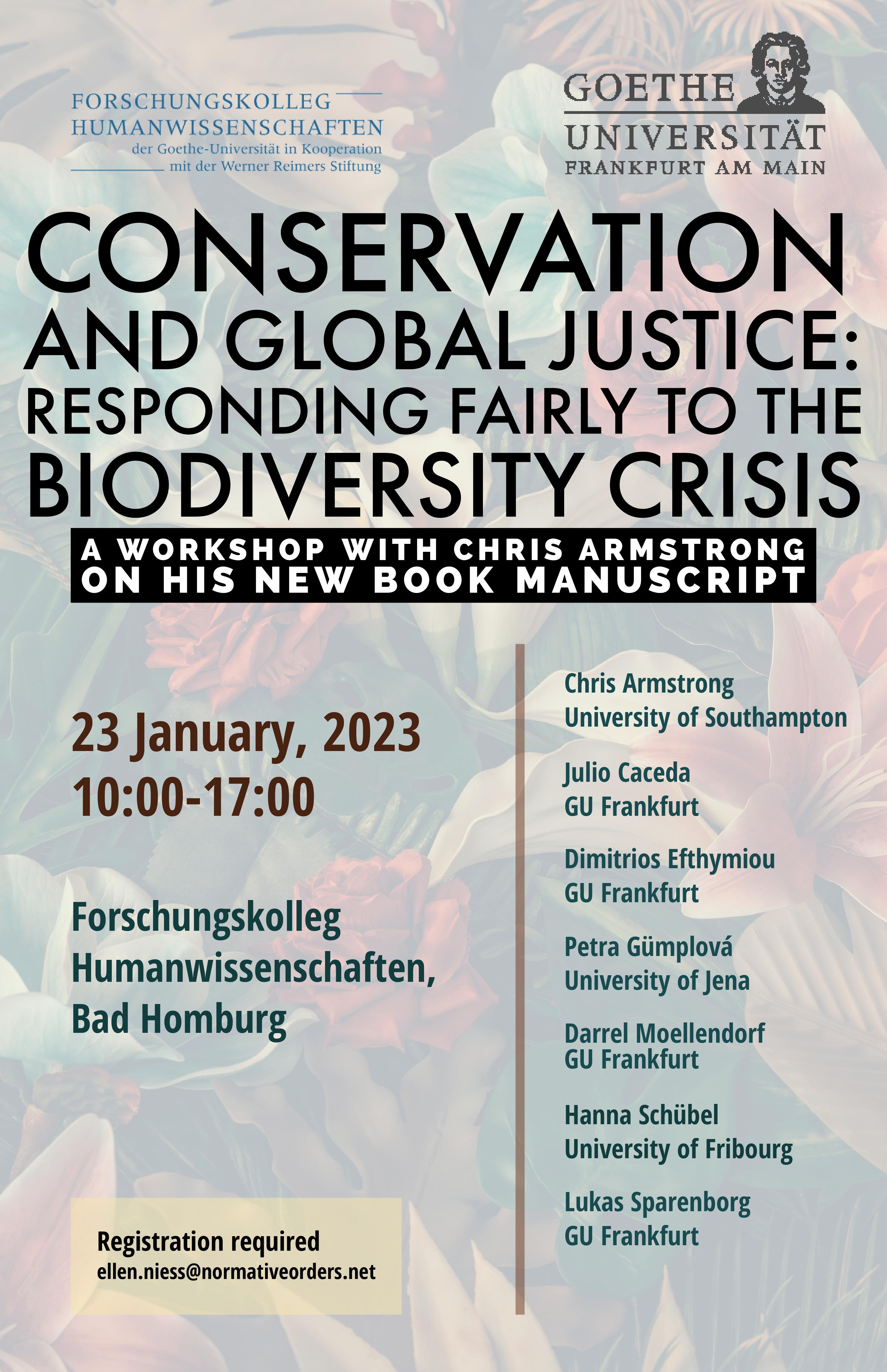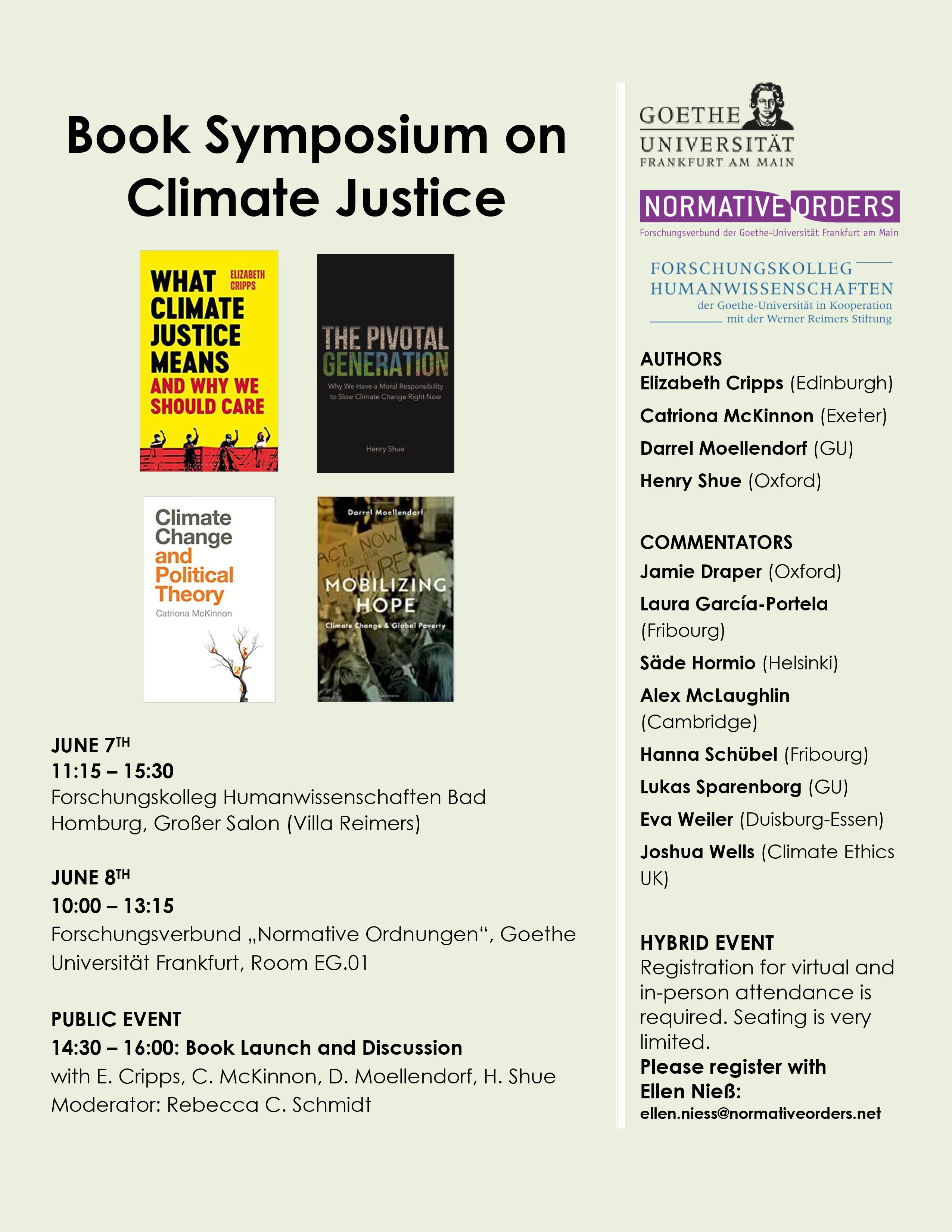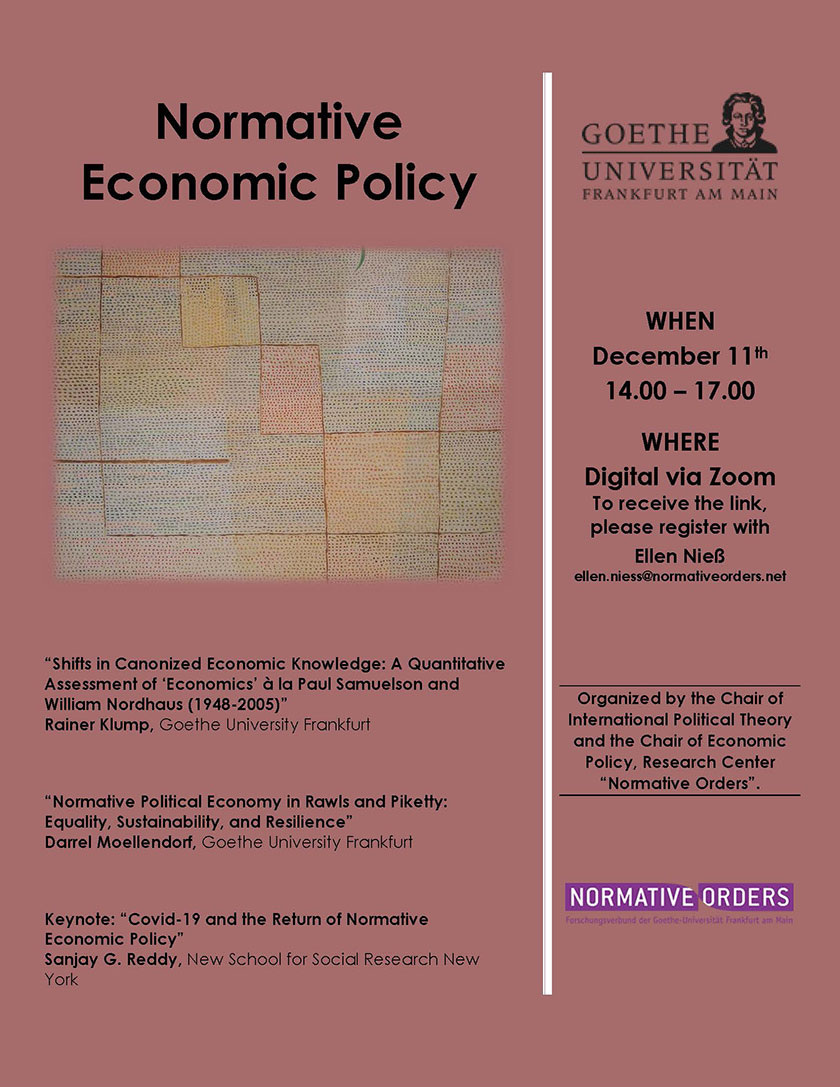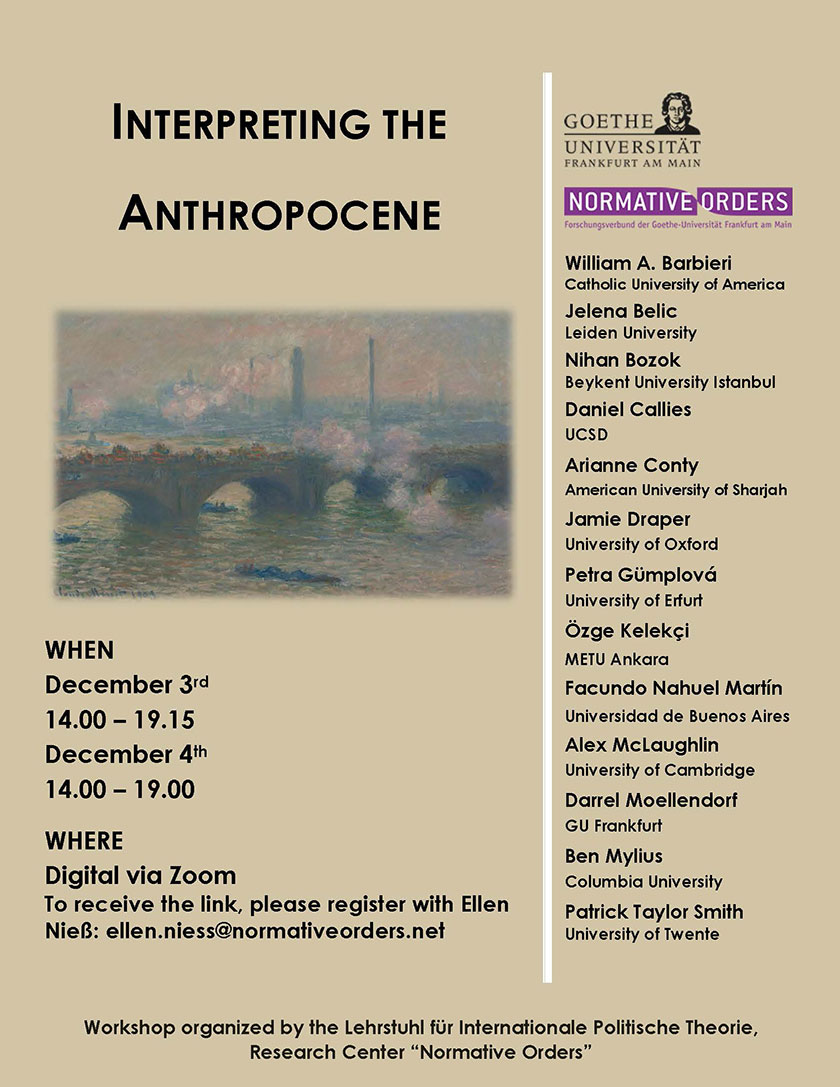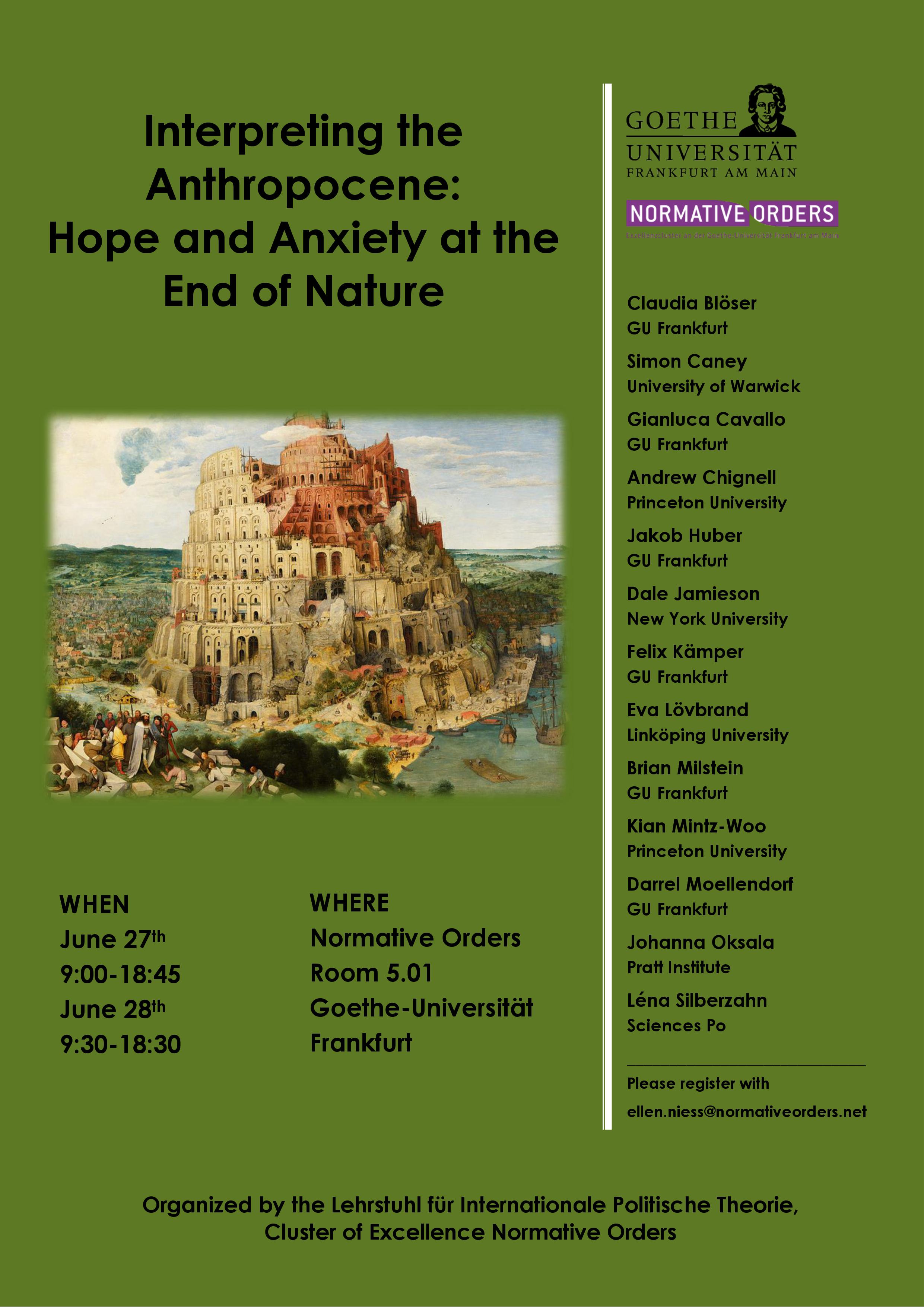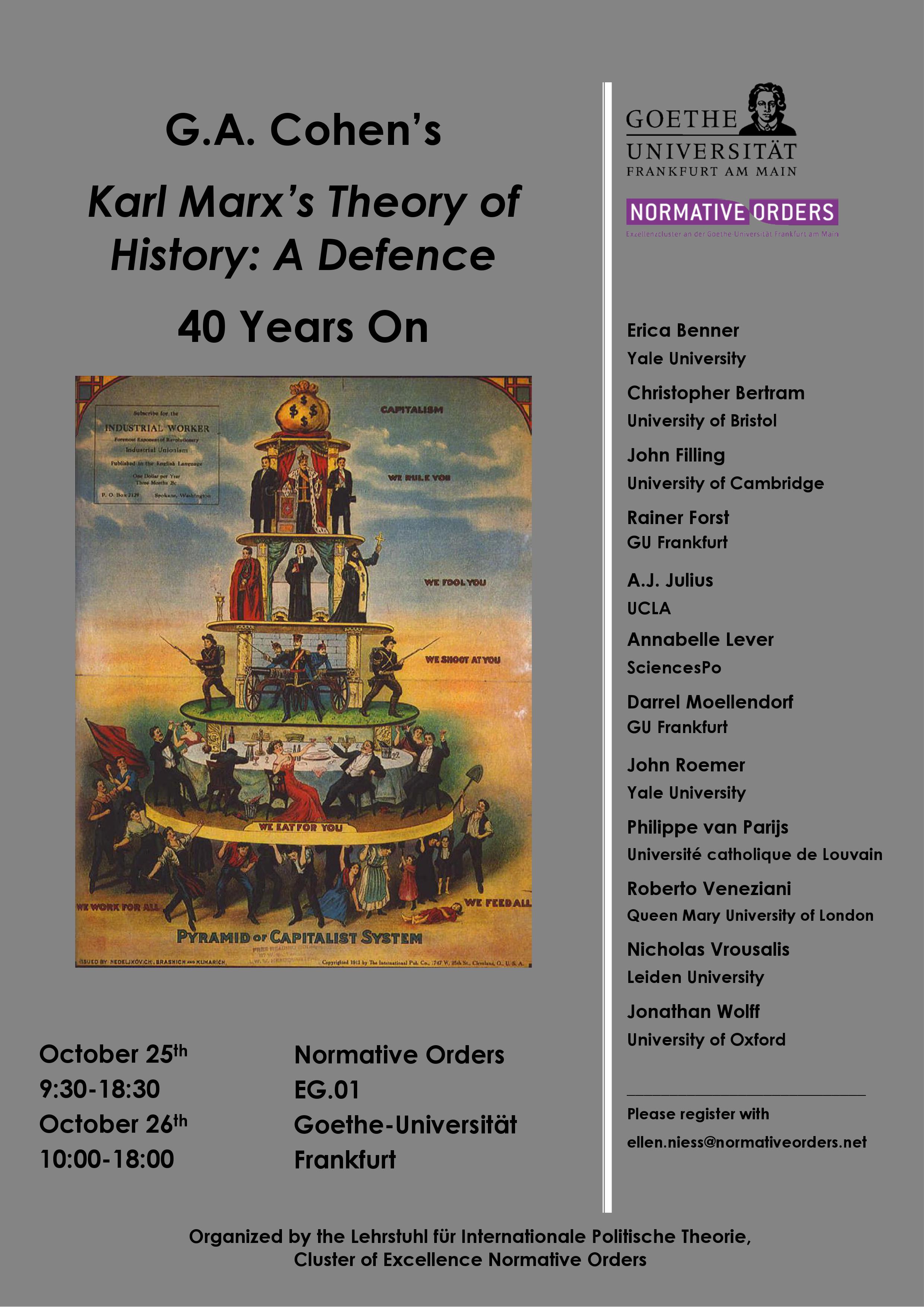Prof. Darrel Moellendorf - Professur für Internationale Politische Theorie und Philosophie
Besucheranschrift
Goethe Universität Frankfurt
Fachbereich Gesellschaftswissenschaften
Institut für Politikwissenschaft
Haus "Normative Ordnungen"
Max-Horkheimer-Straße 2, Raum 3.11
Karte des Campus Westend
Ich bin politischer Theoretiker und Umwelt-, Moral- und Politikphilosoph. Die Art der philosophischen Forschung, die ich betreibe, wird von Problemen in unserem Leben und der Welt, in der wir leben, angetrieben. Ich habe viele Interessen in der politischen Theorie und Philosophie im Allgemeinen. Mein Berufsleben begann ich als Hegel-Forscher und beschäftigte mich mit seiner Philosophie des subjektiven Geistes. Ich habe eine egalitäre Form des Kosmopolitismus in den Debatten über globale Gerechtigkeit verteidigt. Ich habe eine Theorie des gerechten Krieges, Jus ex Bello, entwickelt, die sich auf die Moral der Beendigung von Kriegen konzentriert. Derzeit arbeite ich an den folgenden drei Forschungsprojekten: 1) Eine philosophische Abhandlung über meine Erfahrungen mit einer seltenen Form von Blutkrebs mit dem Titel The Examined Illness: Das gute Leben am Rande des Lebens, das 2024 fertiggestellt und 2025 von Intellect Books veröffentlicht werden soll. 2) Ein interdisziplinäres Forschungsprojekt "Making Hope" mit zwei empirisch orientierten Kollegen, in dem untersucht wird, inwieweit zentrale konzeptionelle Fragen der Moralpsychologie der Hoffnung durch eine empirische Studie angemessen beantwortet werden können. 3) Ein Buchmanuskript in politischer Theorie und Umweltphilosophie mit dem vorläufigen Titel Another Anthropocene is Possible: Prosperity within Planetary Boundaries. Ich strebe in meinen Texten Klarheit und analytische Strenge an und achte auf die argumentative Struktur und die Notwendigkeit von Beweisen. Ich ermutige die Studenten, die ich betreue, dies ebenfalls zu tun.
Ich habe von vielen verschiedenen Autoren gelernt und mich von ihnen inspirieren lassen, unter anderem von den folgenden:
“I tried to ask myself, when writing: precisely what does this sentence contribute to the developing exposition or argument, and is it true? You become analytical when you practice that sort of (frequently painful) self-criticism."
─G.A. Cohen, Karl Marx's Theory of History, A defence, Vorwort zur Ausgabe 2000
“Historically one of the main defects of constitutional government has been the failure to insure the fair value of political liberty. The necessary corrective steps have not been taken, indeed, they never seem to have been seriously entertained."
– John Rawls, A Theory of Justice, 1971
“[T]here are some things in our social system to which I am proud to be maladjusted and to which I suggest that you too ought to be maladjusted. I never intend to adjust myself to the viciousness of mob rule. I never intend to adjust myself to the evils of segregation and the crippling effects of discrimination. I never intend to adjust myself to the tragic inequalities of an economic system which takes necessities from the masses to give luxuries to the classes. I never intend to become adjusted to the madness of militarism and the self-defeating method of physical violence. I call upon you to be maladjusted. Well you see, it may be that the salvation of the world lies in the hands of the maladjusted."
─Martin Luther King, Jr., A Look to the Future, 1957
“Pessimism is cowardice. The man who cannot frankly acknowledge the 'Jim-Crow' car as a fact and yet live and hope is simply afraid either of himself or of the world. There is not in the world a more disgraceful denial of human brotherhood than the 'Jim-Crow' car of the southern United States; but, too, just as true, there is nothing more beautiful in the universe than sunset and moonlight on Montego Bay in far Jamaica. And both things are true and both belong to this our world, and neither can be denied."
—W.E.B. Du Bois, Darkwater, Voices from within the vale, 1920
„Die Arbeit gegen die Lebensangst und die Umtriebe der Furcht ist die gegen ihre Urheber, ihre großenteils sehr aufzeigbaren, und sie sucht in der Welt selber, was der Welt hilft; es ist findbar.“
– Ernst Bloch, Das Prinzip Hoffnung, 1954
“I may also confess that common as is the jackrabbit he never burst away in speed before me without being followed by wonder at his graceful mystery of motion; that the crawl of a wild-cat upon game is something that arrests and fascinates by its masterful skill; and that even the desert tramp, the coyote, is entitled to admiration for the graceful way he can slip through patches of cactus. The fault is not in the subject. It is not vulgar or ugly. The trouble is that we perhaps have not the proper angle of vision. If we understood all, we should admire all."
– John C. Van Dyke, The Desert, 1901
Kontaktdaten
E-Mail: darrel.moellendorf@normativeorders.net
Fragen zur Lehre bitte ausschließlich an: lehre-moellendorf@soz.uni-frankfurt.de
Sprechstunde: Dienstags 10 - 12 Uhr nach Vereinbarung über das Sekretariat.
Betreuung von Studierenden
Ich betreue studentische Abschlussarbeiten in normativer politischer Theorie und Philosophie. Ich kann keine Arbeiten betreuen, deren Argumente in erster Linie auf empirischen Studien und Methoden beruhen (qualitativ und quantitativ). Studierende, die eine solche Arbeit schreiben möchten, sollten sich einen anderen Betreuer suchen. Ich erhalte eine Vielzahl von Anfragen zur Betreuung von Bachelor-Arbeiten und priorisiere daher wie folgt:
1) Studierende, die Seminare bei mir belegt haben und die in Bereichen arbeiten, zu denen ich ausreichend Expertise habe.
2) Studierende, die im Bereich Umweltphilosophie bzw. Politische Theorie der Umwelt arbeiten.
3) Falls weitere Kapazitäten bestehen Studierende aus anderen Bereichen, in denen ich über ausreichend Expertise verfüge.
In den Semesterferien biete ich keine BA- und MA-Betreuungstermine an und führe keine mündlichen Prüfungen durch.
Betreuungsanfragen richten Sie bitte an die Teamassistentin Frau Ellen Nieß, um einen Sprechstundentermin mit mir zu vereinbare.
The story of how I got here.
The day I shook Nelson Mandela's hand.

Teamassistentin: Ellen Nieß
Raum: 3.12
Tel.: +49 (0)69 / 798 - 31521
Fax: +49 (0)69 / 798 - 31462
ellen.niess@normativeorders.net
Öffnungszeiten des Sekretariats für Studierende:
Nach Vereinbarung.
Aktuelle Artikel und Kapitel
Unter Klimaforschern herrscht
weitgehend Konsens, dass der Mensch durch die anhaltende Produktion von
Treibhausgasen globale und ‚unumkehrbare‘ Klimaveränderungen in Gang gesetzt
hat und das Ausma0 der Schäden nur durch ernsthafte
Emissionsvermeidungsstrategien beschränkt werden kann (IPCC 2019). Stritt ist
gleichwohl die konkrete Ausgestaltung einer solchen Strategie. Ökonomische
Modelle berechnen in diesem Kontext wohlfahrtsmaximierende
Vermeidungsstrategien. Das Optimumskalkül folgt dabei dem Kriterium der
Pareto-Effizienz, vernachlässigt aber in den meisten Fällen den Gedanken der
Verteilungsgerechtigkeit. Eine faire Verteilung der Kosten, sowohl zwischen als
auch innerhalb der Generationen, stellt jedoch eine wichtige Voraussetzung für
ein starkes Commitment der beteiligten Akteure dar. Die vorliegende Arbeit
untersucht daher, wie sich modellierte Vermeidungsstrategien ändern, falls
neben dem Effizienzgedanken auch Kriterien einer gerechten Verteilung in das
Optimumskalkül einfließen. Konkret werden ein ability-to-pay sowie ein
emission-intensity-reduction-Ansatz näher untersucht. Im Ergebnis zeigt sich,
dass der ability-to-pay-Ansatz keine wesentlichen Fairnessvorteile gegenüber
dem rein effizienzgetriebenen Ansatz verspricht. Dagegen scheint die
kontinuierliche Reduktion der Emissionsintensität eine gerechtere Verteilung
der Kosten mit einer erfolgreichen Beschränkung der Erderwärmung vereinen zu
können.
Aktuelles
Anstehende Veranstaltung: Hope in Times of Crisis
Darrel Moellendorf skizziert das Forschungsvorhaben "The Hopeful Personality" und Lukas Sparenborg spricht mit Ilaria Cozzaglio zu dem Verhältnis von Hoffnung und Vertrauen im Kontext von Klimaaktivismus. Weitere Informationen hier.
Moellendorf zu Gast beim New Books Network: Mobilizing Hope
Der Podcast kann hier abgerufen werden.
"Das Opfer hat keine Mitschuld an Kriegsverbrechen" - Moellendorf in der FAZ
Deutsche und englische Version von Darrel Moellendorf's aktuellem Artikel in der Frankfurt Allgemeinen Zeitung: "Ukraine has no Jus ex Bello obligation to enter into concessionary negotiations"
Workshop Conservation and Global Justice
Workshop mit Chris Amstrong: Conservation and Global Justive - Responding fairly to the Biodiversity Crisis am 23. Januar. Weitere Informationen hier.
Ausschreibung: 2 PostDoc Positionen
Ausschreibung von zwei PostDoc Stellen im Global Health Programm für das akademische Jahr 2023/24. Weitere Informationen hier.
Moellendorf im aktuellen UN-Bericht zur Bekämpfung des Klimawandels
Der Artikel “Responsibility for Increasing Mitigation Ambition" (2020) von Prof. Moellendorf wurde in dem aktuellen UN-Bericht zur Bekämpfung des Klimawandels erwähnt und zitiert. Siehe Kapitel 4, Seite 99.
- Aktuelles und Presse
- Pressemitteilungen
- Öffentliche Veranstaltungen
- Uni-Publikationen
- Aktuelles Jahrbuch
- UniReport
- Forschung Frankfurt
- Aktuelle Stellenangebote
- Frankfurter Kinder-Uni
- Internationales
- Outgoings
- Erasmus / LLP
- Goethe Welcome Centre (GWC)
- Refugees / Geflüchtete
- Erasmus +
- Sprachenzentrum oder Fremdsprachen
- Goethe Research Academy for Early Career Researchers
- Forschung
- Research Support
- Forschungsprojekte, Kooperationen, Infrastruktur
- Profilbereich Molecular & Translational Medicine
- Profilbereich Structure & Dynamics of Life
- Profilbereich Space, Time & Matter
- Profilbereich Sustainability & Biodiversity
- Profilbereich Orders & Transformations
- Profilbereich Universality & Diversity








